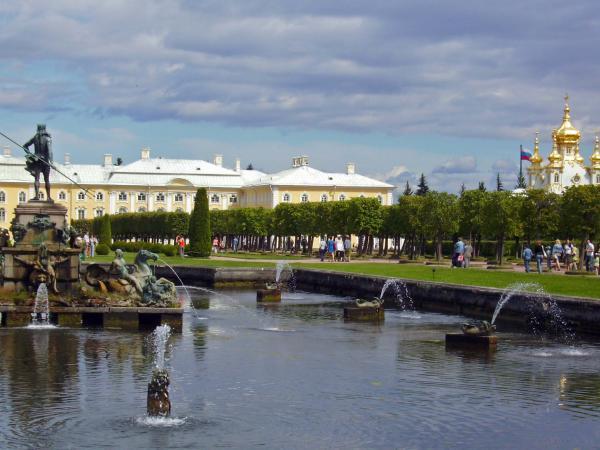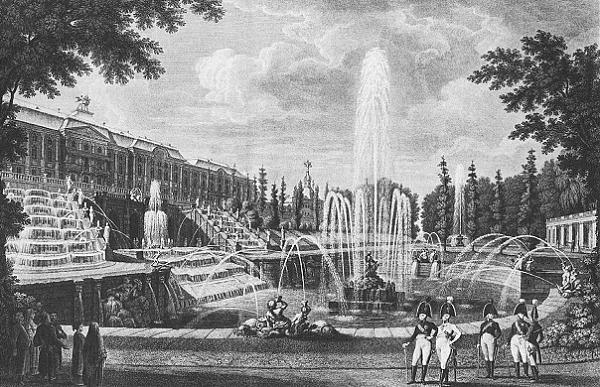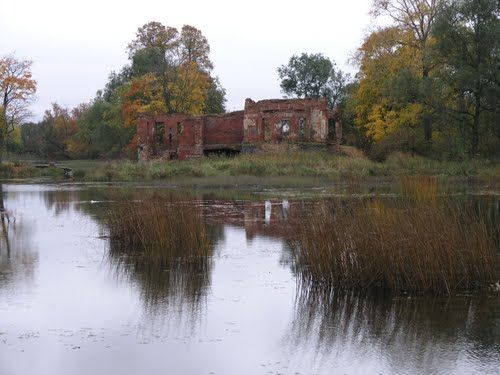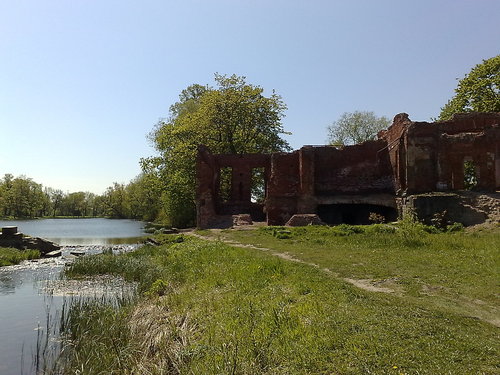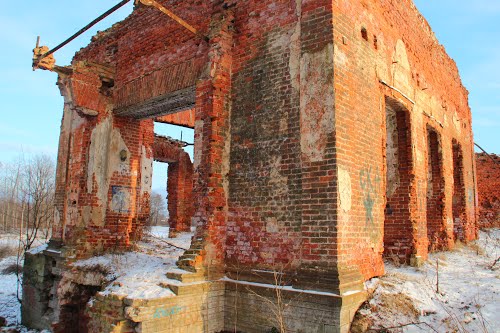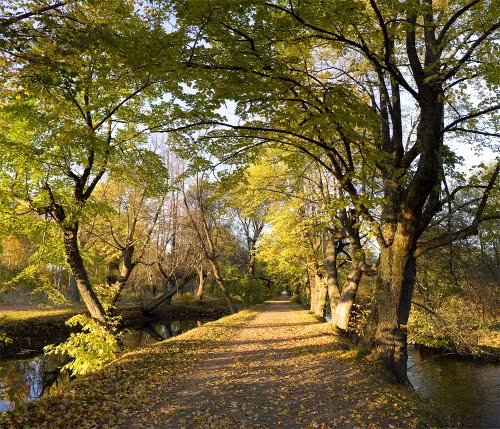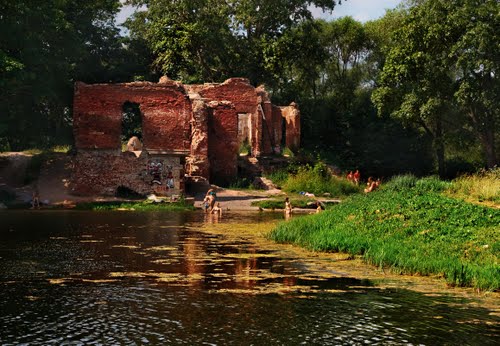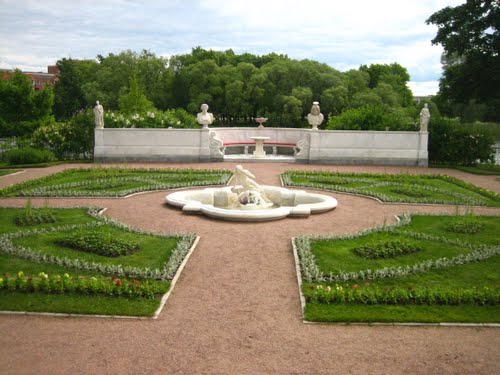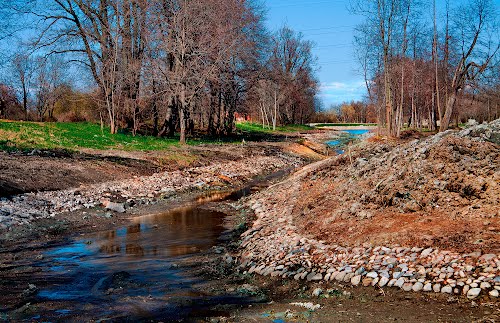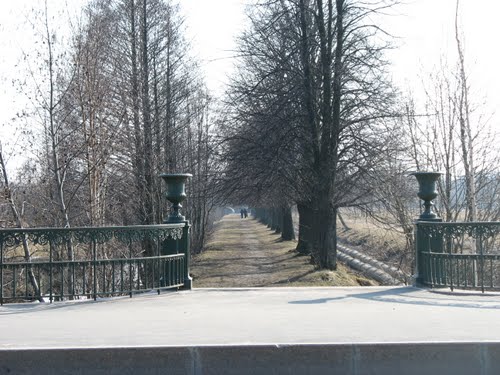Petergof or Peterhof, known as Petrodvorets from 1944 to 1997, is a municipal town in Petrodvortsovy District of the federal city of St. Petersburg, located on the southern shore of the Gulf of Finland.
The town hosts one of two campuses of Saint Petersburg State University and the Petrodvorets Watch Factory, one of the leading Russian watch manufactures. A series of palaces and gardens, laid out on the orders of Peter the Great, and sometimes called the "Russian Versailles", is also situated there. The palace-ensemble along with the city center is recognized as a UNESCO World Heritage Site.
Palaces, fountains, and gardens
The dominant natural feature of Peterhof Grand Palace is a sixteen-meter-high bluff lying less than a hundred meters from the shore. The so-called Lower Gardens, at 1.02 km² comprising the better part of the palace complex land area, are confined between this bluff and the shore, stretching east and west for roughly 200 meters. The majority of Peterhof's fountains are contained here, as are several small palaces and outbuildings. East of the Lower Gardens lies the Alexandria Park with 19th-century Gothic Revival structures such as the Gothic Chapel.
Atop the bluff, near the middle of the Lower Gardens, stands the Grand Palace. To the south of it are the comparatively small Upper Gardens (Verhny Sad). Upon the bluff's face below the Palace is the Grand Cascade. This and the Grand Palace are the centerpiece of the entire complex. At its foot begins the Sea Channel, one of the most extensive waterworks of the Baroque period, which bisects the Lower Gardens.
St. Petersburg State University
The Petrodvorets Complex dates back to 1960s when it was decided to copy best international practices and create a brand-new suburban campus for the University that experienced crucial need for new premises. Yet, the idea was said to be widely opposed by the faculty who did not want to commute two hours a day, and as few as four faculties were relocated to Petergof.
In 1990s, the number of students from other regions fell significantly, and the University sold many of its downtown dormitories. When the trend reversed, the need for housing made the University administration accommodate most students in Petergof, even those from downtown faculties, which has created certain tensions. Yet, the idea of a suburban campus seems to be persistent, as the Government of the Russian Federation has decided to hand over the Mikhailovka estate to the University to reconstruct it and house the Graduate School of Management's campus.
Due to the extensive presence of research facilities, mainly belonging to St. Petersburg State University, Petergof was named a naukograd in 2005.
Petrodvorets Watch Factory
Russia's oldest factory was founded by Peter the Great in 1721 first as a lapidary plant to help in the construction of the Peterhof Palaces but also other Palaces in St. Petersburg. It started producing equipment and parts for the watch industry in the 1920s. After World War II, the factory started to fully produce watches under the brand name Pobeda and from 1961 under the brand Raketa. in 1985 the factory had 7500 employees and was producing 5 millions mechanical watches per year. As of today it is the last watch factory in Russia producing its own movements from A to Z, though the production is much smaller than it used to be.



